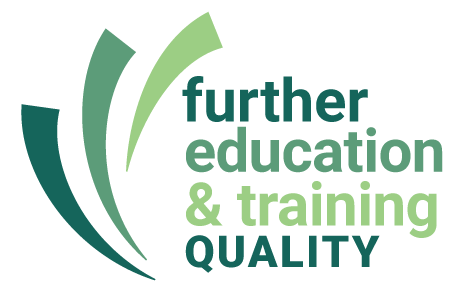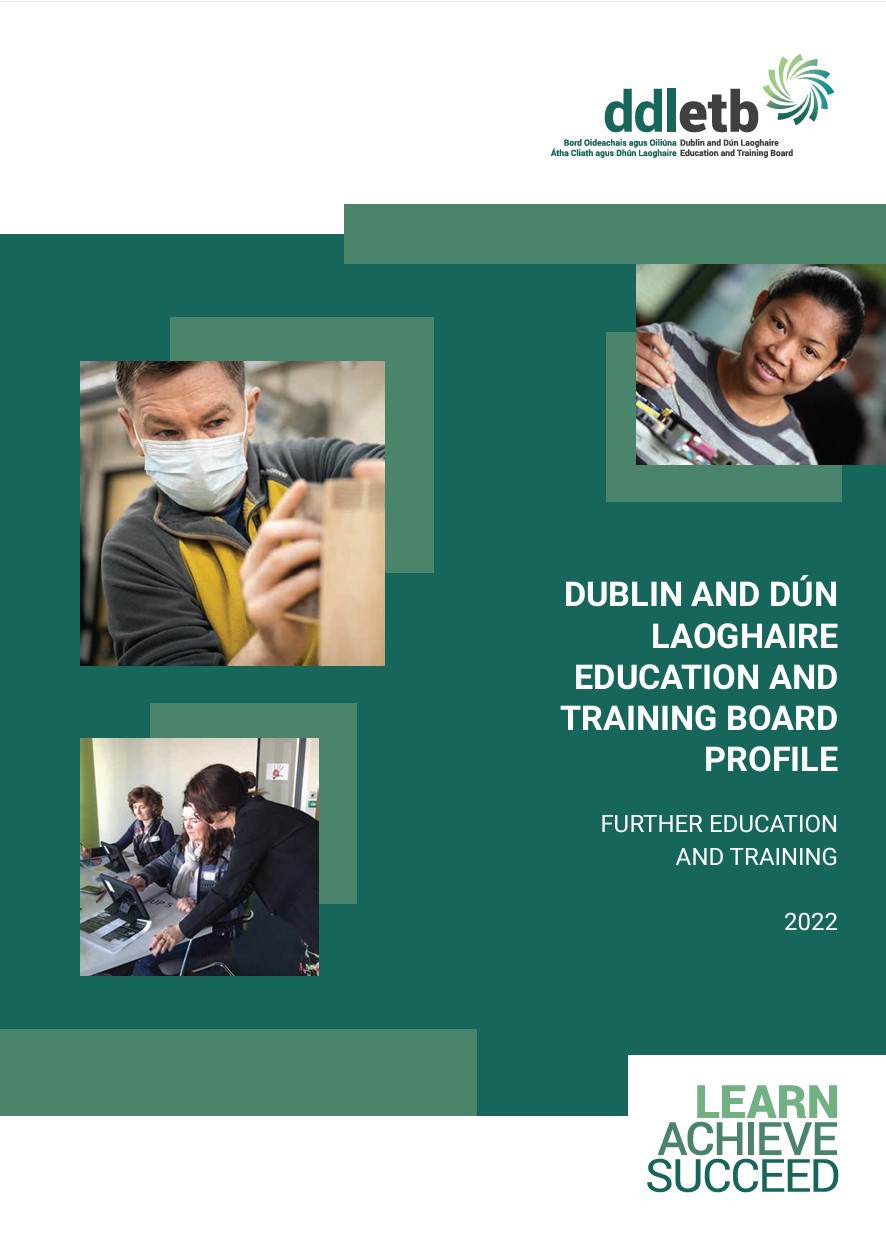Quality Assurance in DDLETB
DDLETB has a dedicated Quality Assurance (QA) Unit, led by the Quality Assurance Manager, and supported by three QA Officers.

1 – Governance and Management of Quality
Governance and Management of Quality
2 – Documented Approach to Quality Assurance
Documented Approach to Quality Assurance
3 – Programmes of Education and Training
Programmes of Education and Training
4 – Staff Recruitment, Management and Development
Staff Recruitment, Management and Development
5 – Teaching and Learning
Teaching and Learning
6 – Assessment of Learners
Click here to see Policies and Procedures relating to the Assessment of learners.
DDLETB is committed to the delivery of high-quality education and training programmes, with quality assured provision and high levels of achievement and certification by learners, as outlined in its Statement of Strategy, 2022-2026. Central to the delivery of high-quality education and training, are assessment processes which are transparent, fair, valid, reliable, and consistent for all learners.
Assessment of Learners in DDLETB
Assessment is considered an essential part of an effective teaching and learning process in DDLETB, and a range of systems have been put in place to ensure consistency of assessment across all services and centres (see Assessment Policies and Procedures). Work is currently underway to develop a common approach to many aspects of assessment, however, certain differences will remain between certain services for operational reasons. Thus, the three Training Centres (Baldoyle Training Centre, Tallaght Training Centre and Loughlinstown Training Centre) have a different approach to assessment than the remaining Further Education (FE) colleges and centres, Adult Education Service, and Youthreach centres.
Approaches to Assessment in DDLETB
Training Centres have a centralised approach to assessment managed by the Training Standards Officers, which ensures that all learners are assessed consistently. The Assessment Instrument Specifications used in the Training Centres were transferred from SOLAS to DDLETB as part of their validated programmes.
FE colleges and centres, Adult Education and Youthreach for the most part use locally devised assessments, issued to learners in briefs, which are developed by each teacher/tutor for their class. This facilitates the development of innovative assessments which are relevant to the learner’s context, while still allowing the learner to evidence the learning outcomes.
A suite of Assessment Procedure Handbooks have been developed to support consistency of assessment across all centres (see Assessment Policies and Procedures). These consist of:
- Reasonable Accommodation in Assessment
- Assessment Deadlines: Short-term Extensions and Compassionate Consideration in Extenuating Circumstances
- Examinations: Planning, Conducting, Concluding
- Assessment Malpractice
- Assessment Process Appeals
- Assessment Results Appeals
- Secure Storage
Assessment for Appprenticeships
DDLETB delivers a number of apprenticeships as a Collaborating Provider on behalf of a range of providers. These include both Craft Standards Based Apprenticeships, which were developed by SOLAS prior to 2016, and apprenticeships developed after 2016 by a range of different providers who act as Coordinating Provider. The Quality Assurance for these apprenticeships, including assessment procedures, is managed by the relevant Coordinating Provider.
Assessment Information to Learners
Learners are informed about how and why they are assessed: this happens both as part of the induction process, and through the assessment briefs that are issued to learners with each assessment. This provides learners with all relevant information regarding the assessment, including marking criteria and assessment deadlines. Brief templates are available to support consistency and transparency, and the Internal Verification process monitors to ensure that they have been issued to learners. When surveyed, staff also reported informing learners repeatedly about their assessments verbally during induction and in class, as well as in written format through learner handbooks and emails etc.
Assessment of Learners on Work Placement
Most learners undertaking QQI certification at NFQ Levels 4-6 will complete work placement as part of their compulsory Work Experience module. Work placements provide learners with the opportunity to develop their skills, integrate knowledge and practise their chosen vocational area. Information regarding work placements will be given to learners at induction, and throughout the duration of the course
Supporting Innovation in Assessment
The QA Unit offers Professional Development (PD) workshops, both developed locally and in conjunction with the Further Education and Support Services (FESS), in developing assignments, briefs and marking schemes at the appropriate level of the National Framework of Qualifications for specific learner groups.
Teachers, tutors and instructors are also strongly encouraged to engage in other professional development opportunities to up-skill in innovative teaching, learning and assessment methodologies.
7 – Supports For Learners
Supports For Learners
8 – Information & Data Management
Information & Data Management
9 – Public information and communication
Public information and communication
10 – Other parties involved in education and training
Other parties involved in education and training
11 – Self-evaluation, monitoring and review
Self-evaluation, monitoring and review




